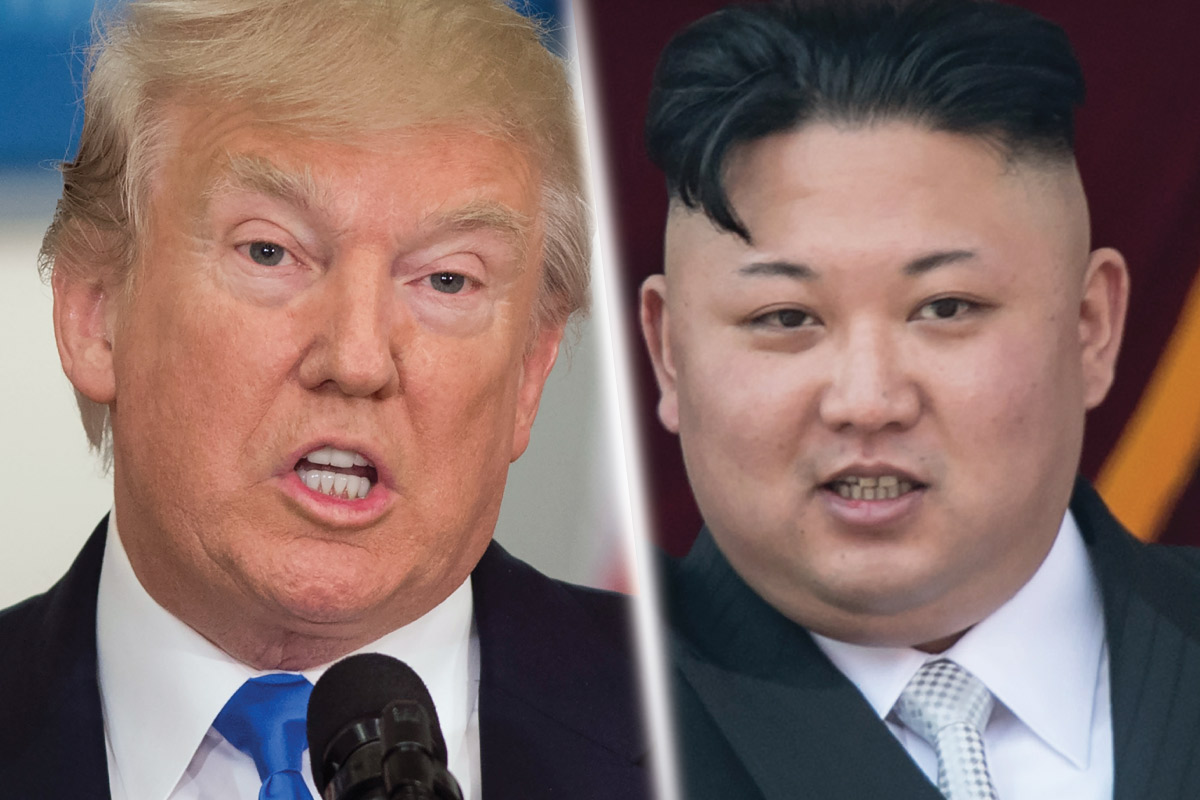US President Donald Trump recently warned that “all options are on the table” in response to North Korea’s recent missile tests. The latest of which, was an unprecedented launch which saw the missile soar over the northern Japanese island of Hokkaido before falling into the sea, 500 nautical miles off the east coast of Japan. In light of these incidences, The ASEAN Post asks, how would a US-North Korea war affect ASEAN (Association of Southeast Asian Nations) member countries.
Bloomberg recently released an analysis of what a war between North Korea and the US might look like and highlighted several tentative options the US may employ.
One option is a surgical strike targeting North Korean missile and nuclear facilities. Such an attack would be risky because if the strike fails to eliminate every facility, it would expose millions of citizens in US and its allied countries to retaliatory attacks. The US must be cautious in ensuring North Korea and its allies understand that a surgical strike is “limited, and that they should avoid nuclear retaliation”.
Another option is a full-scale invasion to quickly take out North Korean military and nuclear assets. However, in preparation of such an attack, visible signs like an increase of US war assets along with the mobilisation of South Korean and Japanese troops could lead Pyongyang and its allies to strike pre-emptively. In his comments published by Bloomberg, Assistant Professor of International Studies at Yonsei University, John Delury remarked that war should be avoided, adding that, “When you run any cost-benefit analysis, it’s insanity."
According to Thomas Benjamin Daniel, an Analyst attached to the Foreign Policy and Security Studies Programme of the Institute of Strategic and International Studies (ISIS) Malaysia, there would be huge economic and political costs in the event of such military measures especially since ASEAN states have strong trade linkages with Northeast Asia. He added that “ASEAN has an increasing stake in military activities within the Korean Peninsula, because of the latter’s ability to launch more far reaching missiles.
He also remarked that ASEAN’s reaction to such an event would be reliant on the source of the belligerence. ASEAN is likely to take the path of non-alignment should attacks begin from North Korea. On the other hand, if US initiates, there are concerns that some ASEAN states would be more critical than others.
The less belligerent option is to push for a regime change in Pyongyang. However, a new administration may not necessarily translate into a more liberal leadership. Kim Jong Un might even start ticking off a long kill list comprising members of his ruling clique, who could potentially undermine him and facilitate a regime change. Moreover, China would very likely want to continue propping up his regime to avoid a refugee crisis and increased US military presence close to its borders.
Daniel opined that ASEAN would likely take the measured approach in the event of Kim Jong Un’s usurpation, citing relatively close existing ASEAN-North Korea ties. Nevertheless, he also warned that given strained relations between Malaysia and North Korea in the recent past, ASEAN states must remain cautious when doing so.
Long Live Diplomacy
The most level-headed option and the one currently being adopted is diplomacy. It is, nevertheless an extremely tiresome one. The US may have to scale back on its military activities and Trump might have to shackle his tongue and thumbs (which he uses to punch away furious tweets), to mollify the North Korean regime. The US and its allies can also inveigle Kim’s administration to bring them back to the negotiating table and proceed with talks to stabilise and de-escalate tensions in the region.
ASEAN is a likely candidate to help in mediating tensions via the ASEAN Regional Forum (ARF). Recently, South Korea has recognised the importance of ASEAN as a strategic partner with the looming threat over nuclear warfare within the Korean Peninsula. The association has always been at the forefront against nuclear proliferation and can leverage on its relatively stable ties with North Korea to seek a solution to this growing antagonism. In the recent ARF meeting which concluded early August, Philippine Foreign Secretary, Alan Peter Cayetano reiterated that North Korea “immediately comply fully with its obligations under relevant United Nations Security Council (UNSC) resolutions”.
While the ARF is condemned for its stifling approach to diplomacy underscored by the ASEAN Way, Pyongyang’s participation in the ARF does make it a more attractive diplomatic avenue to resolve the issue against the backdrop of the failed Six Party Talks which include Japan, South Korea, China, North Korea, Russia and the US.
Echoing this sentiment, Linda Quayle, Assistant Professor of International Relations from the University of Nottingham Malaysia Campus, remarked that “ARF is noted for its non-threatening, ASEAN-derived modus operandi”. However, she provides a sobering reminder that the forum “has never quite managed to move beyond its initial objective of confidence-building and on to its more ambitious goals of preventive diplomacy and the elaboration of approaches to conflicts”, stating that such a move “would therefore be breaking new and difficult ground.”
“Traditionally ASEAN has chosen to include rather than isolate, and that track record also makes the ARF a potentially useful, non-coercive intermediary arena.” She adds that, “There are not many good options in this situation. Attempting to mobilise the diplomatic machinery of the ARF definitely comes in the 'could do worse' category”.
If diplomacy is the much preferred option to de-escalate tensions within the region, ASEAN would play a vital role. War is undoubtedly destructive and it has been conventional conduct to relegate it for use only when every other measure is exhausted. Unless one is a misanthrope and would very much want to see the world obliterated by a thermonuclear war.
